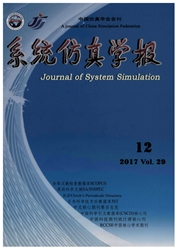

 中文摘要:
中文摘要:
设计了并实现了消息传播多智能体模拟模型(ENS),研究了个人的社会联系数量、对流行病消息的信任度和传播网络结构对流行病消息传播的影响。研究发现,随着社会联系数量的增加,流行病消息传播速度迅速增加,而直接听到消息的比例减少;随着信任度的增加,流行病消息的传播速度迅速增加,而直接听到消息的比例变化不显著;在小世界网络结构下,流行病消息的传播和遗忘速度比随机网络中慢。
 英文摘要:
英文摘要:
A multi-agent simulation model of epidemic news spread (ENS) was designed and realized and the impacts of the number of personal social ties, the belief degree to epidemic news and the spread network structure to the epidemic news spread process were studied. It is found that with increasing number of social ties, the spread speed of epidemic news will speed up rapidly and decreases the ratio of the number of the people heard of epidemic news directly; while with the increasing degree of the trust to the epidemic news, the spread speed of epidemic news will also speed up rapidly, but variation of the ratio of the number of the people heard of epidemic news directly is not significant. It is also found that the forgetting speed and the spread speed becomes slower than that in random network when the spread network structure is assumed as small network.
 同期刊论文项目
同期刊论文项目
 同项目期刊论文
同项目期刊论文
 Research on product development iterations based on feedback control theory in a dynamic environment
Research on product development iterations based on feedback control theory in a dynamic environment 期刊信息
期刊信息
